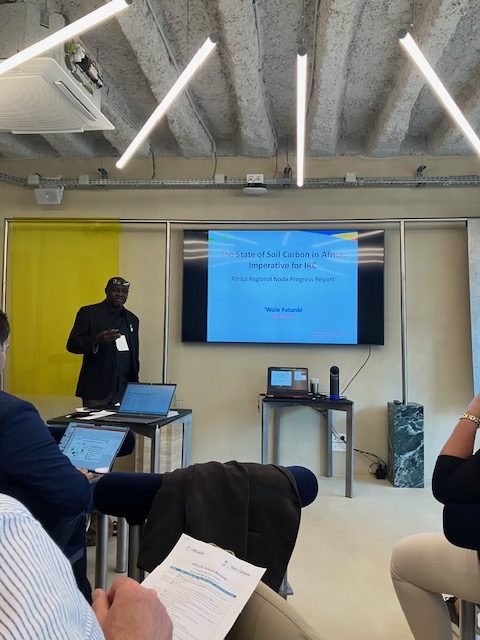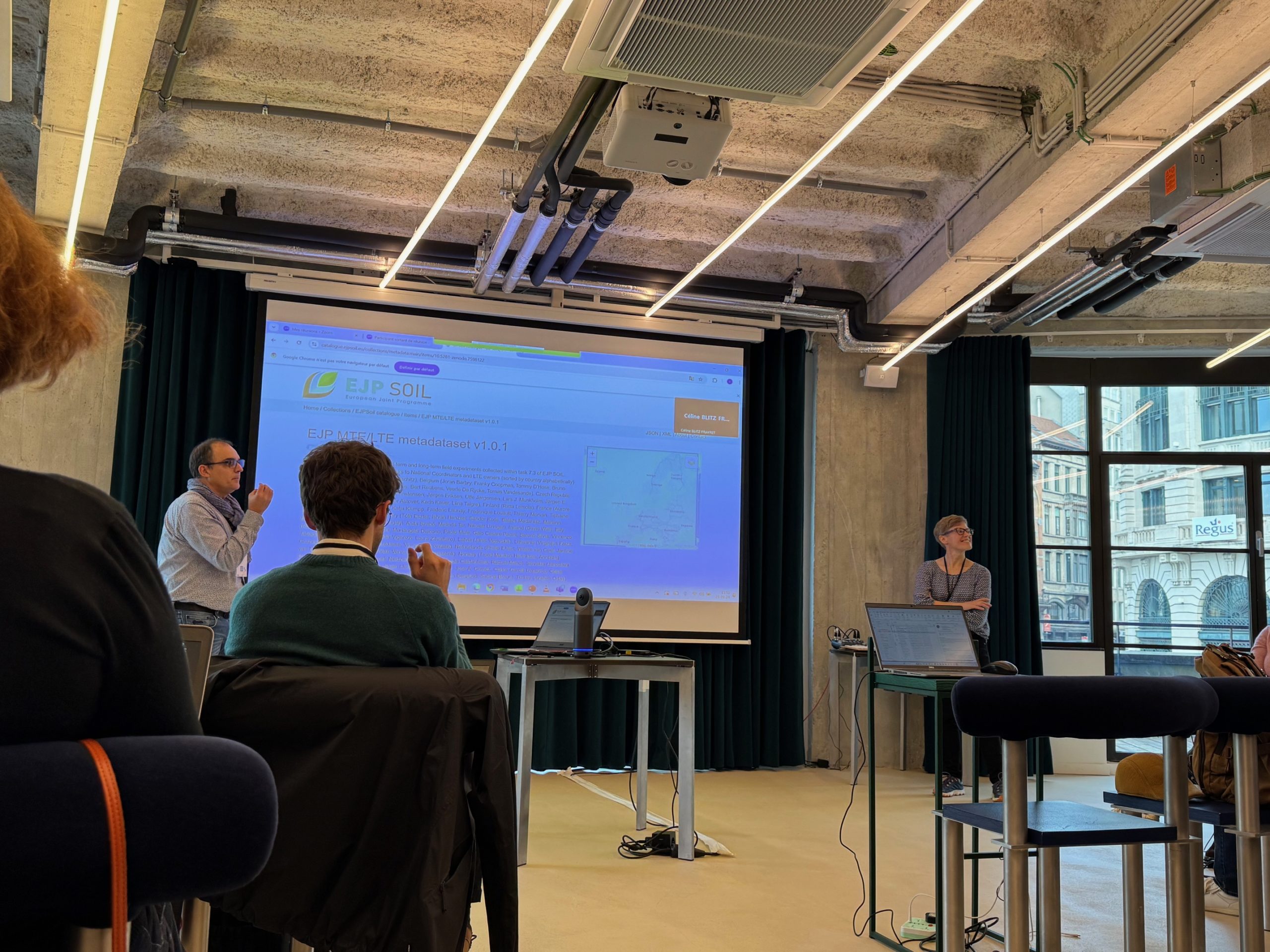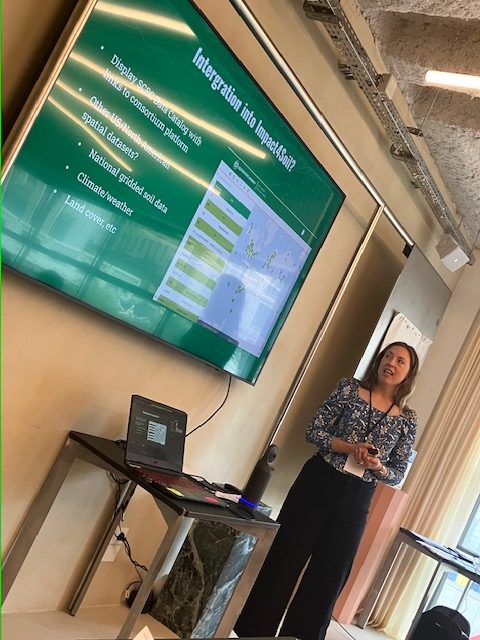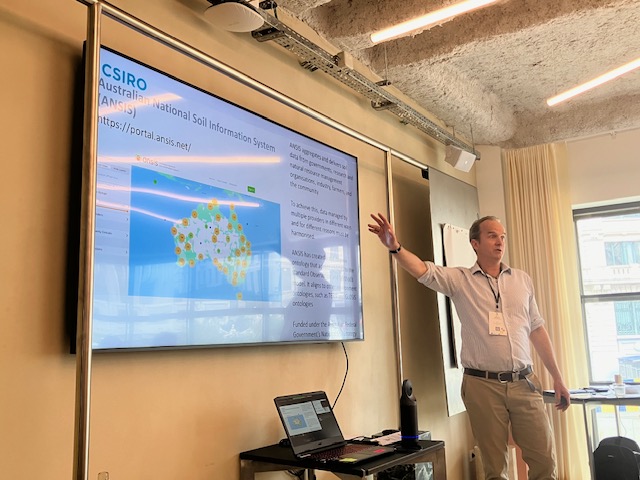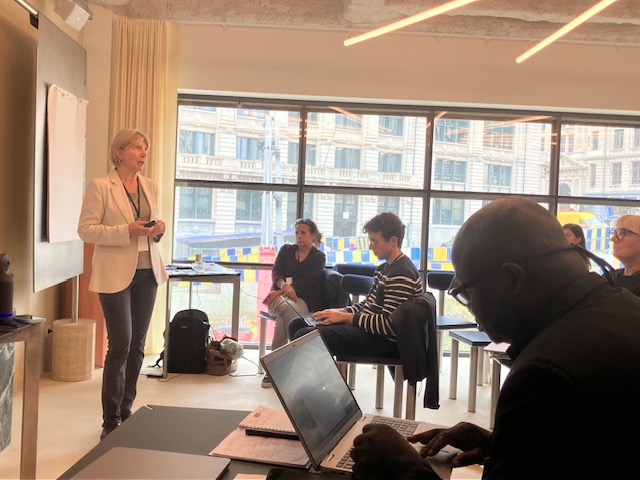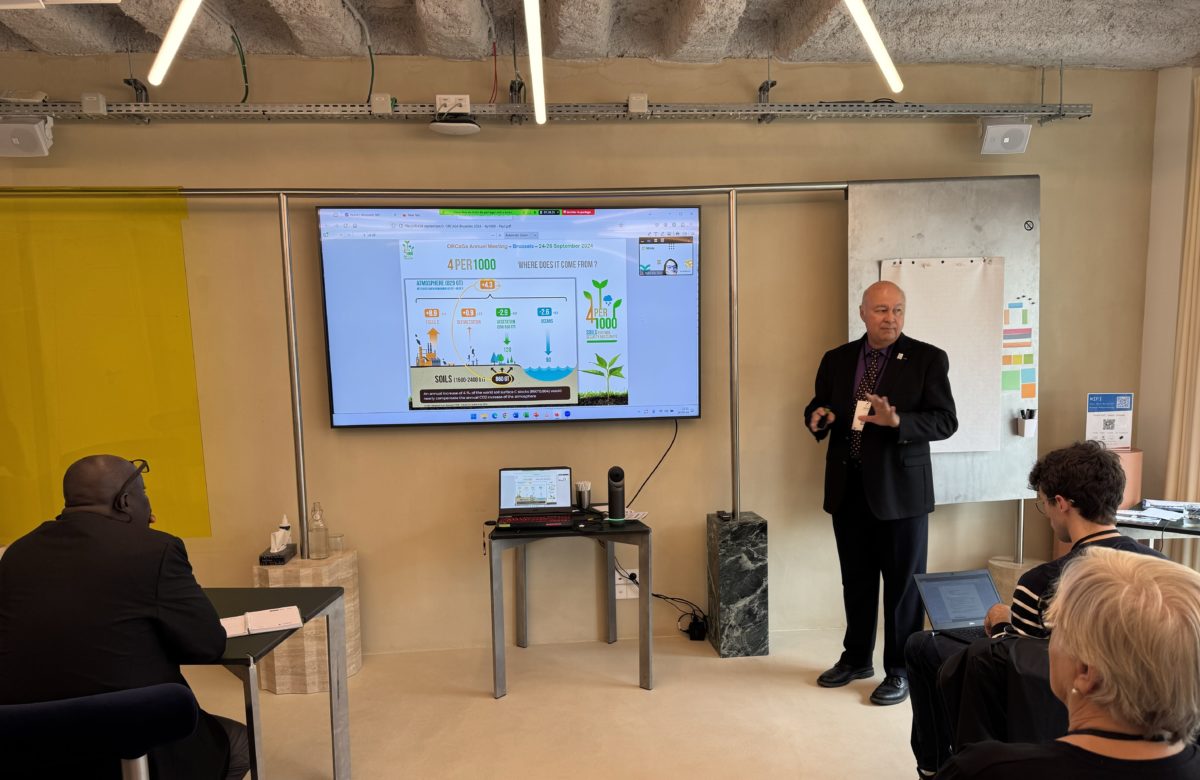ORCaSa partners in Brussels
On September 23rd and 24th 2024, ORCaSa held its annual meeting in Brussels, marking the project’s final year and celebrating recent collaborations. Partners shared their latest results and discussed the remaining project activities, which are set to conclude in August 2025. For the first time, all five regional nodes met face-to-face, with representatives traveling from Australia, Brazil, Ghana, Vietnam, and the US.
The meeting began with updates from the regional nodes, where representatives shared progress and insights from their respective regions. They also offered to organise a series of workshops and conferences to strengthen the Soil Carbon International Research Consortium (IRC) at a global scale while also raising awareness of its services and activities.
In addition, significant attention was given to the Impact4Soil knowledge platform, which was launched in spring. The ORCaSa team is planning to work to gather user feedback and develop new features where necessary. Representatives from sister projects, including MARVIC, SoilWise, and EJP Soil, were also present, sharing the tools and platforms they have developed, as well as the key soil-related issues and research topics they are addressing.
A Cookbook in Preparation
One of ORCaSa’s central tasks is the development of a “cookbook” for a Monitoring, Reporting, and Verification (MRV) framework, designed to monitor changes in soil organic carbon (SOC) stocks on cultivated land. This document aims to help users address the wide variation in current methods across different regions. Given the diversity of soil types—ranging from agricultural land to forests, pastures, wetlands, and urban areas—a harmonised, easy-to-use framework will simplify the day-to-day work of environmental experts.
Stakeholders from the Soil Carbon IRC are keen to learn how this practical and affordable framework can be adapted to their specific contexts, supporting the implementation of soil carbon practices.
One year of Soil Carbon IRC
In a few weeks, the Soil Carbon IRC will be celebrating its first anniversary. It has been making significant progress over the past months, working closely with internationally renowned members to promote sustainable soil carbon management.
During the recent meeting, the Strategic Research and Innovation Agenda (SRIA) was presented. The main goal of the Soil Carbon IRC is to foster international collaboration among its member projects by leveraging its global network. ‘We must adopt a unified language to move forward together’, says Paul Luu, the Executive Secretary of the International “4 per 1000 initiative“.
In Brussels, discussions emphasised key priorities, such as capacity building, strengthening essential tools, and addressing policy and governance challenges, underscoring the importance of a holistic approach to soil health. As Delphine Derrien from INRAE, the French National Institute of Agricultural Research remarked, ‘Soil health sustainability should be considered in its entirety, not solely in terms of carbon sequestration’.
‘Soil health sustainability should be considered in its entirety, not solely in terms of carbon sequestration.’
Following the ORCaSa annual meeting, a policy workshop on international carbon certification schemes was held. This event provided a valuable opportunity for partners and regional nodes to engage with a broader audience, encouraging new collaborations and knowledge exchange within the framework of the Soil Carbon IRC.
Gallery
